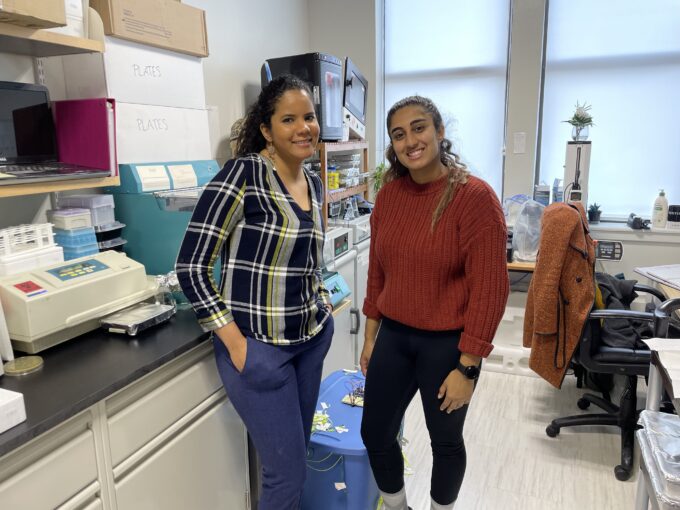Eighteen startups joined our community in the first months of 2023, working on innovations as diverse as an ammonia-based energy system, sneakers made from food waste, and nano-filters that reduce energy consumption in chemical separations.
We’re thrilled to support these groundbreaking climatetech startups—let us introduce you!
Agriculture
Aquosmic Corporation analyzes bodies of water using satellite images, providing thorough, actionable information on surface-water quality.
Buildings
frakktal is a B2B materials company developing bio-based polymer processes for the replacement of fossil-fuel-based feedstocks across industries. The startup is part of the inaugural ACCEL cohort.
Electricity
Active Surfaces unlocks dual land-use applications through its ultra-thin-film, flexible solar technology. The startup is part of the inaugural ACCEL cohort.
Amogy is building a novel, portable, carbon-free energy system using ammonia as a renewable fuel. This system has 5x higher system-level energy densities compared to lithium batteries.
EarthBond leverages group financing and carbon accounting to lower costs and risk in the energy transition of Nigeria’s $14B fuel-based, off-grid generator market. The startup is part of the inaugural ACCEL cohort.
Ohmium enables industries to deploy green hydrogen for a sustainable future. Its patented interlocking proton exchange membrane electrolyzers provide a safe, modular, and flexible design that is straightforward to install, fully scalable, and easy to maintain compared to other customized electrolyzers.
Phase Two Chemicals builds electrochemical systems based on its advanced electrode and reactor design for on-site, on-demand chemical generation and energy storage applications.
SnoFox Sciences’ physics-based SaaS platform leverages the first principles of thermodynamics to evaluate refrigeration systems’ performance. Enhanced by machine learning, the platform provides actionable insights such as fault classification and predictive maintenance recommendations.
SolBid is a commercial and industrial solar software and services company with a technology platform that simplifies the assessment and deployment of solar energy systems.
Tycho Solutions is developing a platform for renewable energy developers that accelerates evaluation of potential project locations via geospatial services.
Manufacturing
Allium Engineering has an innovative manufacturing method that introduces a thin shell of stainless steel to existing building materials, such as steel rebar. This manufacturing process can integrate into existing steel production and produces a drop-in replacement for conventional parts.
Bluetech Robotics uses robotics to clean biofouling from ship hulls. Biofouling increases drag and therefore fuel consumption of large ships, making it a key obstacle in lowering emissions.
SepPure’s new generation of nano-filters dramatically reduces energy consumption and pollution globally by enabling the most effective chemical separation at a molecular level, without the traditional use of heat.
SpadXTech is contributing to the reduction of CO2 emissions impacting several industries such as packaging, textiles, transportation, filtration, and construction through the manufacturing of its core and versatile material platform technology. The startup is part of the inaugural ACCEL cohort.
Top Grain Technologies is commercializing a scalable, high-throughput heat treatment solution that imparts a directionally solidified grain structure to additively manufactured Ni-base superalloys, enabling their use in the most demanding high-temperature applications, from combustion turbines to rocket engines.
Resiliency + Adaptation
DrinKicks is a sneaker-themed consumer-products company that is focused on repurposing food waste and recycled materials into sustainable goods such as shoes, sports equipment, and clothing, all while educating consumers on the power of the circular economy. The startup is part of the inaugural ACCEL cohort.
Planckton Data is developing a platform that can manage the entire carbon-data lifecycle by automating data collection and providing insights into usage.
Regenerative Resources acquires highly degraded land, transforms it—whether into restored ecosystems or agro-ecologies—and commercializes the outputs via an on-shore aquaculture system.


